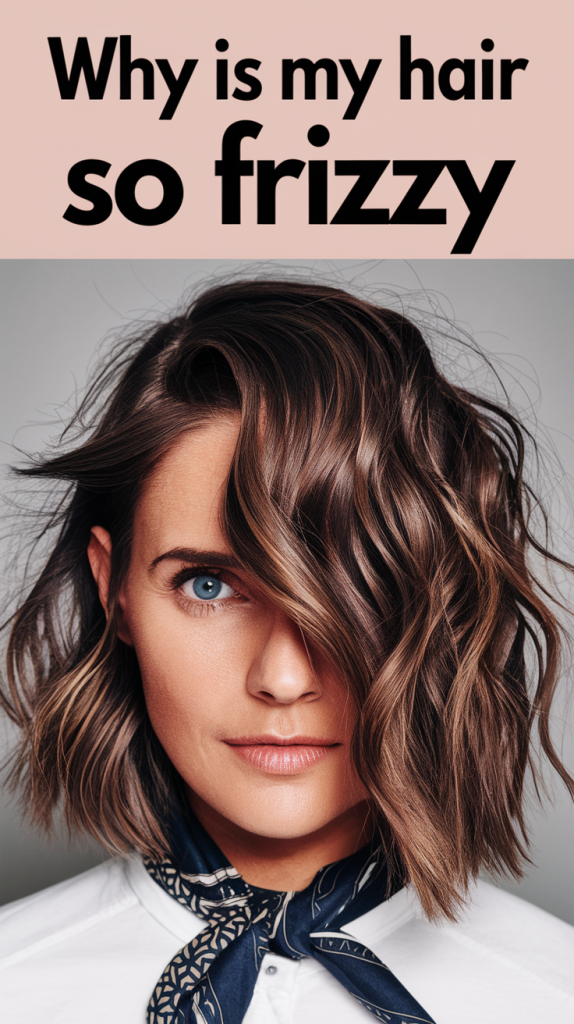Why Is My Hair So Frizzy?
Frizzy hair—who hasn’t struggled with it at some point? It’s as if your hair has its own agenda, defying every product and styling technique you try. As someone who has been through countless battles with frizz, I can confidently say that understanding its causes and solutions can completely change the way you care for your hair. Let’s uncover why your hair might be frizzy and, more importantly, how to regain control.
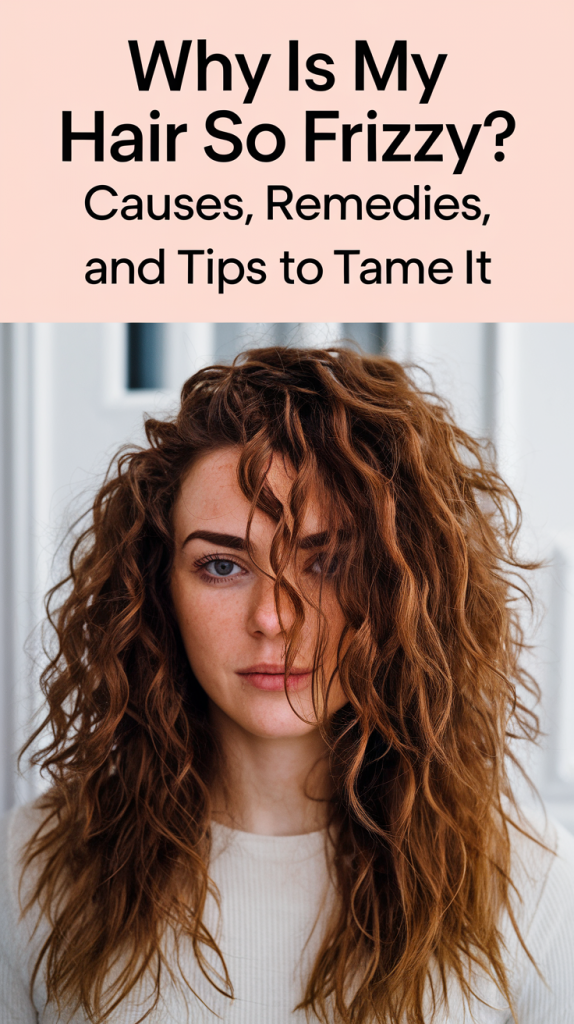
What Causes Frizzy Hair?
Frizz occurs when the hair shaft absorbs moisture from the air, causing the outer cuticle layer to lift. This results in an irregular texture and that dreaded puffiness. However, frizz isn’t just about the weather—it’s caused by a combination of factors.
1. Genetics and Hair Texture
Frizz often starts with genetics. Curly and wavy hair types are naturally more prone to frizz because natural oils struggle to travel down the shaft, leaving the hair dry and vulnerable. Additionally, high-porosity hair (often caused by damage or naturally occurring) absorbs and loses moisture rapidly, which leads to frizz.
2. Humidity and Environmental Factors
Humidity is the most notorious cause of frizz. When your hair is dry, it seeks moisture from the air, which causes the hair shaft to swell. Similarly, environmental stressors like UV exposure, wind, and pollution can weaken the hair cuticle.
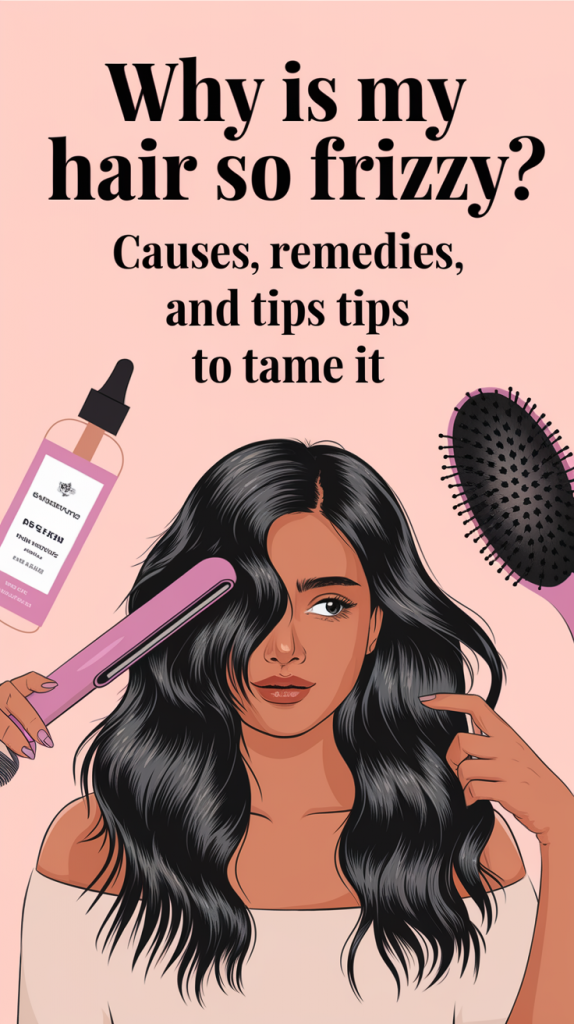
3. Heat Styling and Chemical Treatments
Excessive heat styling and chemical treatments can rob your hair of moisture, damage the cuticle, and make it more vulnerable to frizz.
4. Water Quality
Hard water, rich in minerals like calcium and magnesium, can build up on your hair, stripping it of moisture and leaving it frizzy and dry.
5. Daily Habits
Sometimes, it’s the small things we do daily that contribute to frizz:
- Using rough towels to dry hair.
- Brushing hair when dry.
- Skipping hair protection during sleep.
- Overwashing or washing with hot water.
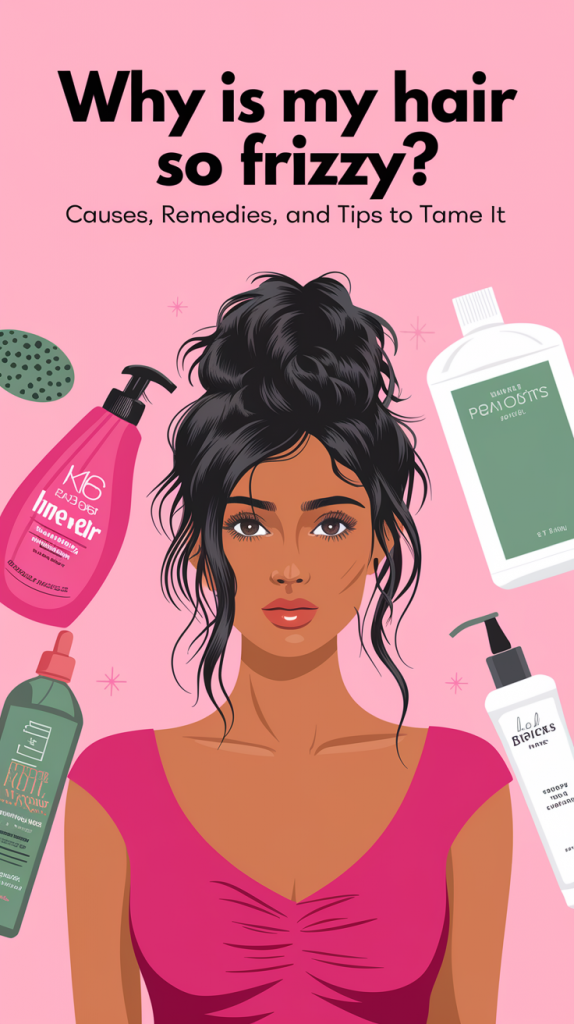
How to Manage Frizzy Hair
Managing frizz is all about keeping your hair hydrated and minimizing damage. Below are some effective methods, organized by category.
1. Choose the Right Products
Investing in the right hair care products is essential. Look for sulfate-free shampoos, deeply hydrating conditioners, and lightweight serums.
| Product Type | Recommendation | Benefit |
|---|---|---|
| Shampoo | Living Proof No Frizz Shampoo | Blocks humidity and smooths hair. |
| Conditioner | Kérastase Nutritive Bain Satin | Deep hydration for thick hair. |
| Heat Protectant Spray | Color Wow Dream Coat | Shields hair from heat damage. |
2. Hydration Is Key
Dry hair equals frizzy hair. Here are hydration-focused tips:
- Use a deep-conditioning treatment weekly.
- Apply leave-in conditioners or oils like argan or coconut oil.
- Rinse hair with cool water after washing to lock in moisture.
3. Adjust Your Washing Routine
Overwashing can strip the hair of natural oils. Here’s what to do:
- Wash 2-3 times a week at most.
- Use lukewarm water instead of hot water.
- Finish with a cold rinse to seal the cuticle.
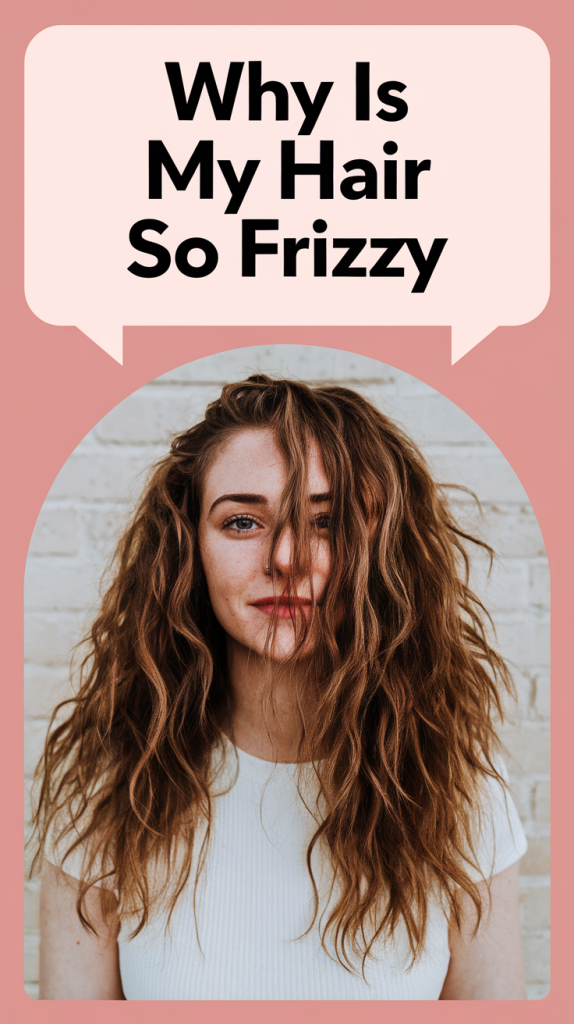
4. Minimize Heat and Friction
Avoid habits that strip your hair of its natural moisture:
- Use a microfiber towel or a soft cotton t-shirt to dry hair.
- Limit heat styling, and always use a heat protectant.
- Sleep on a silk or satin pillowcase to reduce friction.
5. Long-Term Treatments
For those looking for lasting results, consider salon treatments:
- Keratin Treatment: Smooths hair and reduces frizz for months.
- Brazilian Blowout: Adds shine and strengthens the cuticle.
Natural Remedies for Frizzy Hair
If you prefer natural solutions, here are a few tried-and-tested methods:
- Coconut Oil: Use as a pre-shampoo treatment to deeply hydrate hair.
- Avocado Hair Mask: Mix avocado with honey for a nutrient-rich mask.
- Aloe Vera: Smooth aloe vera gel over your hair to reduce frizz naturally.
| Remedy | Ingredients | Application Method |
|---|---|---|
| Coconut Oil | Pure coconut oil | Apply to hair for 30 minutes before washing. |
| Avocado Mask | Avocado, honey | Mix and leave on hair for 20 minutes. |
| Aloe Vera | Fresh aloe vera gel | Apply to damp hair and rinse. |
Tips to Prevent Frizz
Here are actionable tips to prevent frizz before it starts:
- Protect Your Hair from Humidity: Use anti-humidity sprays or oils before stepping out.
- Test Hair Porosity: A float test helps you understand your hair’s needs.
- Eat for Healthy Hair: Foods rich in omega-3 fatty acids, biotin, and vitamin E can strengthen your hair.
FAQs About Frizzy Hair
1. Can frizzy hair be permanently fixed?
No, but it can be managed effectively with the right care and products.
2. Why does my hair frizz after conditioning?
Your conditioner might not be hydrating enough, or your hair could require deep-conditioning treatments.
3. Is frizz a sign of damage?
Not always. Frizz can also result from humidity, genetics, or lack of moisture.
4. Can hard water make frizz worse?
Yes, hard water minerals build up on the hair and exacerbate dryness.
5. How do I control frizz on the go?
Keep a travel-size anti-frizz serum or smoothing cream in your bag for quick touch-ups.
6. Does hair type affect frizz?
Yes, curly and wavy hair types are naturally more prone to frizz.
Conclusion
Frizz may feel like an uncontrollable beast, but with the right knowledge and care, you can tame it. By understanding the causes—be it genetics, humidity, or habits—you can implement solutions that work best for your hair type. Remember, the key is consistent care and hydration. Try out these tips and share your journey in the comments below!
